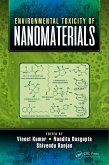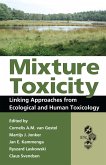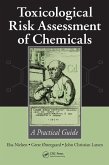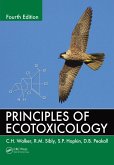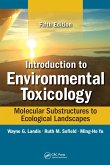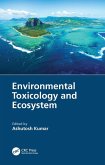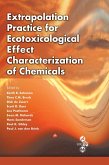Nondestructive Biomarkers in Vertebrates presents an innovative approach for hazard assessment in vertebrates based on nondestructive rather than destructive methods. The book reviews the state of the art and defines the development and validation procedure of this new strategy. Biological materials, such as blood samples, epithelial tissue, eggs, feathers, and feces that can be obtained without stress or damage to the animal are suggested. Certain traditional studies (blood esterases, blood chemistry, mixed function oxidases, porphyrins, DNA damage, and cytological changes) can be performed on these specimens, along with new tests requiring only very small samples. This approach is developed to benefit protected, threatened species whose existence cannot be further jeopardized by the use of destructive methods. This volume will be particularly useful to ecotoxicologists, wildlife protection personnel, environmental consultants, and conservationist organizations.
Dieser Download kann aus rechtlichen Gründen nur mit Rechnungsadresse in A, B, BG, CY, CZ, D, DK, EW, E, FIN, F, GR, HR, H, IRL, I, LT, L, LR, M, NL, PL, P, R, S, SLO, SK ausgeliefert werden.



